With them having famously been just teenagers when they released their debut single in 1994 it seems fitting – and not a little tongue in cheek – that the indie rock trio chose Teenage Wildlife for the title of their 25th anniversary compilation. The name – from a David Bowie song that appears on the “rarities” disc of the three-disc set – is clearly one that resonates: it also belongs to a documentary about the band, itself almost a decade old.
Where early contemporaries have imploded, drifted apart and cashed in on the inevitable reunion tour, Ash have remained consistent – longevity that can be chalked up, in part, to their willingness to experiment with different musical styles and formats, as well as their long-standing friendship. Teenage Wildlife draws from eight albums, the soundtracks to cult classics A Life Less Ordinary and Shaun of the Dead and the band’s A-Z project of 2009, where they released a new song every fortnight. Musically, the collection takes in the spiky punk and power pop roots of debut mini-album Trailer and breakthrough 1977, infectious melodies and stadium-sized choruses of 2001’s Free All Angels and the up-to-date, melodic alt-rock of Islands.
“We don’t feel like we’re weighed down by what we’ve done in the past, that we can’t try out new ideas,” says drummer Rick McMurray who, along with frontman Tim Wheeler and bassist Mark Hamilton, is preparing for a lengthy run of UK and European anniversary shows before heading back to the studio for the next chapter. “We’re always focused on the next thing for the band: we don’t want to take it for granted that we can just dine out on these songs that are 25 years old.”
Still, the quarter-century point seems like an appropriate point from which to look back – as I suggested to McMurray, after confessing that my earliest musical memory was watching the trio perform 1996 single “Oh Yeah” on Top of the Pops.
LIS FERLA: Does that feel like forever ago to you?
RICK MCMURRAY: I’m just trying to remember playing that on Top of the Pops! There’s a couple that really stick out, like doing “Girl From Mars” for the first time. For some reason I remember “Goldfinger” as well because Chris Eubank was presenting, and we were at number 5 and Suggs was at number 6 with “Cecilia” which went down amazingly well with Chris Eubank’s lisp.
It was always good fun doing Top of the Pops. A bit nerve-wracking the first time. For my parents, I think that was the moment that the penny dropped that things were actually going really well for the band, the first time we went on there. But I think, because songs like “Oh Yeah” and “Girl From Mars” have been in the setlist pretty much the whole time since they were written, they feel like something that’s grown with us. It’s almost like those songs are part of our DNA. It’s only when people tell us their stories about those songs that you sit back and go, wow, it’s a hell of a milestone to still be in a band and still playing these songs from a quarter of a century ago.
Is most of the audience at your gigs in their late 30s? Or are new people coming out and discovering the songs?
I think there was definitely a period where we could tell by the age of the crowd who got into us on which album, but it’s a little bit more difficult these days. Actually, these days we get people who probably got into us on the first album coming along with their kids and they’re down the front row, whole families singing along to “Girl From Mars”. Obviously, the kids weren’t even born when those songs were written. It’s quite sweet when you see stuff like that.
Looking back at the Rick, Tim and Mark of the late 1990s, what surprises you most about how things turned out?
I guess still being here. In the very early days, our manager was very much talking about it as a career thing because he’d known a lot of bands previously who’d signed a massive record deal, put out one record but the record company wouldn’t recoup and then they’d be dropped and you’d never hear of them again. He was very much, if you want to make a career out of it and sign a sensible deal, look at making this something that’s going to last. But even with that understanding, you still can’t think 25 years down the line. You’re maybe thinking, you put out a record, touring that and then maybe writing the next record. You can’t see any further along the line than that, which is maybe two or three years.
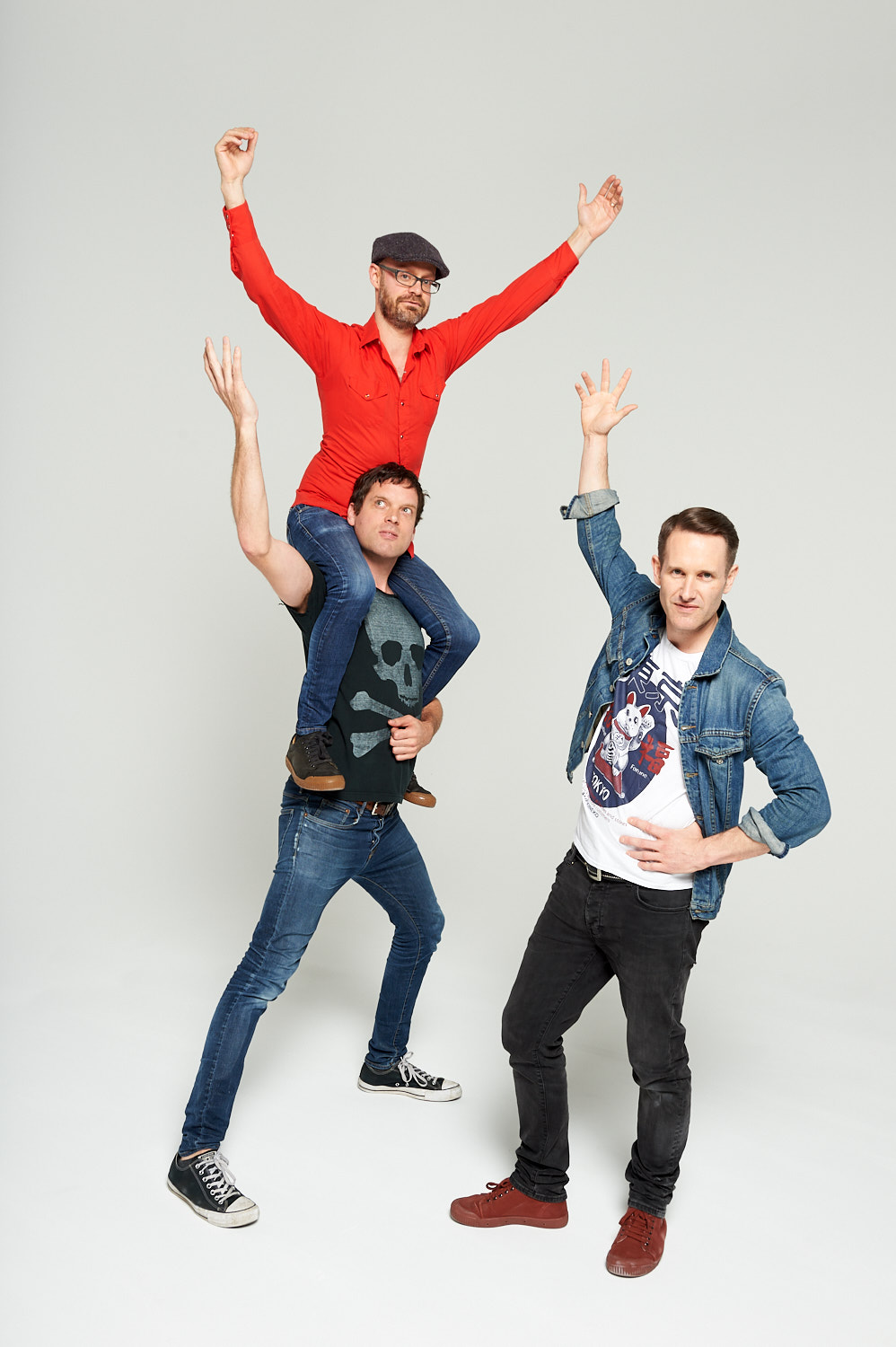 That we’re still here, we’re still friends and we’re going out and touring round the world, is pretty amazing 25 years later. If you look at a lot of the bands that we’re contemporaries of, I’d say if any of them are still playing these days they’ve split up at least once. There’s not many around that have been just an ongoing thing.
That we’re still here, we’re still friends and we’re going out and touring round the world, is pretty amazing 25 years later. If you look at a lot of the bands that we’re contemporaries of, I’d say if any of them are still playing these days they’ve split up at least once. There’s not many around that have been just an ongoing thing.
I know there’s a lot of stuff from back in the early days in our setlist, but we’re always focused on “what’s the next thing for the band?” We don’t want to take it for granted that we can just dine out on these 25-year-old songs. We’re just as excited to play people new stuff and we’ve still got ambition and hopes for the future as well.
You’ve continually evolved and reinvented how your music is presented for changing times. Do you think that learning and growing is part of it?
Oh, yeah. The A to Z project was, I guess, a perfect illustration of what we’re like as a band. At a time when everyone’s freaking out and thinking [the growth of streaming] is the end of the music industry, we look at what’s going on and think about how we can use it and be creative with it, try to find a new way of doing things. Once we’ve done something it’s like, “Right, what’s next? What do we do differently?” That’s our whole attitude, and that’s probably why we’re still around these days.
What do you think keeps drawing the three of you back together as a band?
I don’t know, it seems to work right. We seem to have the right chemistry. I wish I had a better answer than that. I don’t know, it just feels like we’ve been through so much – especially in the early days. It’s quite well documented how intense things were for us at a very young age with 1977 going to number one – and then the follow-up album not doing so well.
It’s not just the amazing experiences that bring you together, but the tough times as well. We’ve got each others’ backs. On those first three albums we went from success to feeling like, “Ohhh, are we going to get dropped here?” after Nu-Clear Sounds to coming back and having another number one album after that. I think everything that we learned during that period has served us well. We feel like survivors. No matter what happens, we feel somehow we’ll get through it.
Thinking of the name, Teenage Wildlife: do you still see yourself as teenagers, or do you see yourself as indie rock “elder statesmen” now?
It’s weird: we’ve had a few bands over the years come up to us going, “You guys are great, we really looked up to you when we were kids and learning our instruments.” It’s cool, but it feels a bit uncomfortable at the same time to have that “elder statesman” tag. Like I say, we’re always looking towards the next new thing. I can’t turn down a compliment – I’ll take it – but we feel like there’s so much that we’ve yet to achieve that we don’t want to think of ourselves in those terms.
I think most artists are like that anyway. It’s all about the new stuff. We’re putting out this compilation at the minute, but we’re also sitting on this new record that we’ve just finished, and we’re super-excited about when we get to put that out. But 25 years is a pretty big milestone, and I guess we need to celebrate it [first].
The “teenage” tag was something that seemed to be talked about in the press almost incessantly during the late 90s, but it wasn’t really a big deal to us. The title actually comes from a David Bowie song. The chorus is “I’m not some piece of teenage wildlife”, which I guess is a reaction against that whole thing. So that’s where the title came from. It sounded a bit better than “middle-aged wildlife”.
Do you have a favourite Ash song?
One that I’ve had a real soft spot for over the years is “Goldfinger” [from 1977]. Everything we’d released up until that point was very punky – kind of Buzzcocks-y, melodic punk – but “Goldfinger”, I like the surprise. I think it’s a brilliantly written song, and I think it changed people’s perceptions of us at the time. So that’s definitely one that is close to my heart. But ask me again tomorrow and I’ll give you a completely different one.
What’s been your proudest moment in the past 25 years?
The gig we did ahead of the Good Friday agreement referendum back in 1998. That’s something we’re really proud of being involved with, and it was such an overwhelming thing to play our small part in changing the course of Northern Irish politics. It was such an intense show. The first time that politicians from either side of the divide shook hands together, and you got this iconic image of Bono holding their hands aloft.
[Other than that was] Free All Angels going to number one, after I think a lot of people had written us off after Nu-Clear Sounds. That was a real achievement, to be able to do that and prove to people that 1977 wasn’t just some fluke. I think that was a huge moment.
Are you a fan of “anniversary” gigs? What do you think appeals about them to fans?
We’ve done quite a few of them over the years – a few 1977 shows, things like that. It was a little bit weird the first time we did it from a live set point of view because the album flows in a very different way from our live set, so it took a bit of getting used to.
But I do see the value of it. We did a couple of support shows with Weezer in America when they were doing the Blue album and Pinkerton, and being in the crowd for one of our favourite bands and watching that whole show: I got it. Like I was saying, we don’t really get nostalgic about our own stuff because it feels like it’s grown with us. But when you go and see someone else’s show, that kind of brings home how the fans perceive the shows that we do like that – so I definitely see the value in it, for sure.
What can we expect from these shows? Are you planning more of a “greatest hits” set than you would normally do?
It depends how much rehearsal we can stand to do! I think the older we get, the more we hate the rehearsal room. Last year, when we were touring, we all rehearsed separately. But when it comes to new songs, we’ll have to get in there. We’ll see how things go in Europe. But even on Teenage Wildlife, there are a bunch of songs that we haven’t played live in a long time, so it would definitely be good to dust some of those off.
Tim [Wheeler] told Steve Lamacq on 6 Music that he’d had an idea of doing everything in reverse chronological order, so we’re starting with the new stuff and then working our way back to Free All Angels, Nu-Clear Sounds and finishing with the 1977 stuff and maybe some songs from Trailer as the encore. We might give that a try and see how it works. But it could be pretty amazing. It would definitely build up to quite a crescendo at the end.
Is there anything that you feel you haven’t been able to do, musically, because you’ve been in the same project pretty much most of your life?
I don’t know. I think we give pretty much any style of music a go in the studio. We don’t feel like we’re weighed down by what we’ve done in the past, and that we can’t try out new ideas.
It will be interesting to see what people think of the next album, because I think we’re definitely pushing the envelope quite a bit. After doing the A to Z series, we definitely felt that we needed to justify going back to the album format – especially on [2015’s] Kablammo!, because it was our first album after saying we’re not going to release albums again. We thought, if we’re going to go back to this, it has to be up there with 1977 and Free All Angels, the two big records. It was the first time we looked back on what we did, and it was probably our most “guitar pop” album for about 15 years at that point. I think [2018’s] Islands is sort of in the same vein, but we feel that we’ve re-established ourselves with those two albums now and can start pushing the envelope again.
So yeah, I’m really excited. The new single, “Darkest Hour of the Night”, that was part of the sessions for the new album. It’s not necessarily hinting at a specific direction, but when you put it amongst the old classics, you can hear that it’s definitely doing somewhere different. And we’re going different in quite a few directions at once, but it all weirdly hangs together.
I have one last, possibly controversial, question: you guys are famously big Star Wars fans. What were your feelings about The Rise of Skywalker?
I don’t know. I’ve only seen it once. Maybe I wasn’t in the right frame of mind but I was just like, uh, I’m done. I’m out. It was better than The Last Jedi, but for me it’s too little, too late. I could give you Mark’s phone number and he could talk to you for half an hour about why it’s not shit…
- Teenage Wildlife is out now. The UK leg of the Teenage Wildlife tour kicks off in Leeds on 17 March
- More New Music on theartsdesk

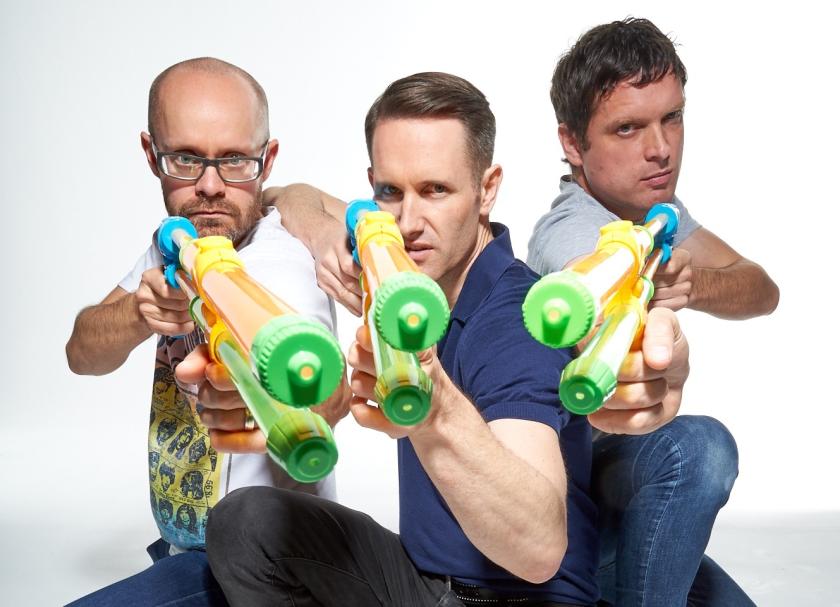









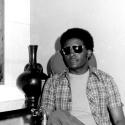
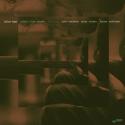
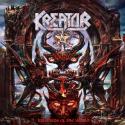

Add comment